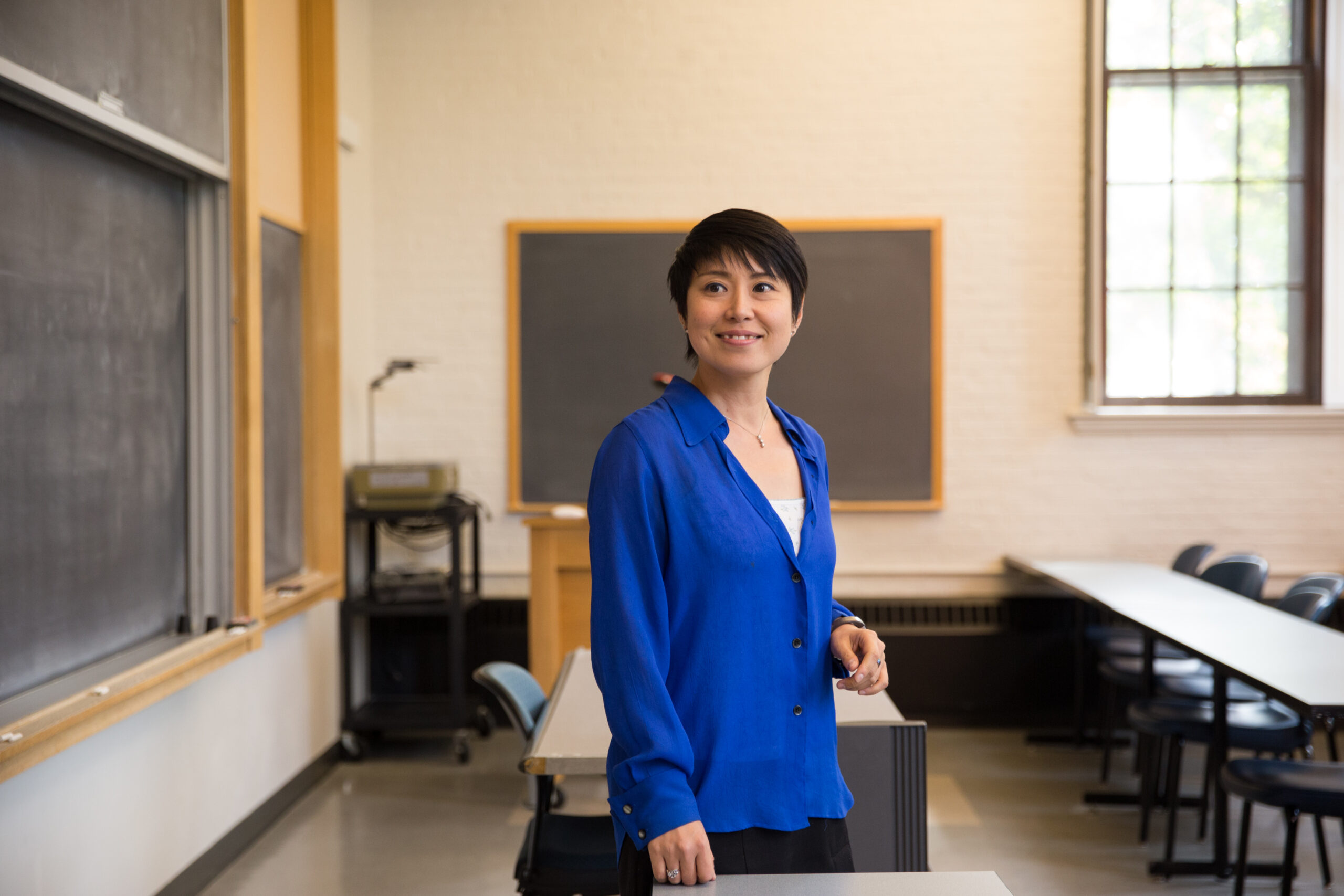Community welcomes women STEM professors
September 22, 2017
 Ann Basu
Ann BasuThree new female STEM professors, Assistant Professor of Computer Science Sarah Harmon, Assistant Professor of Biology Patricia Jones and Assistant Professor of Mathematics Naomi Tanabe, have joined Bowdoin faculty this year and are eager to engage with the liberal arts community.
While all three professors are still early in their transition to Bowdoin, they’ve already had a large impact just by increasing the number of women faculty in STEM departments.
The addition of these professors to the faculty comes at a time of heightened national discourse about the experience of women in scientific, technological and mathematical fields. Revelations in the early months of this year regarding a culture of discrimination and rampant sexual harassment at tech-giant Uber sparked national outrage and renewed debate about what it means to be a woman in tech.
According to Jones, one of the biggest developments for women in STEM is the increasing number of role models, especially as women are being seen in more senior roles. She notes the large impact her mentors had on motivating her to continue to pursue biology.
“As an undergraduate there were at least two mentors for me—professors at Cornell that I did research with in the summer—who really just were encouraging, mostly because they were really happy,” said Jones. “They loved being biologists, they had really happy families and personal lives and hobbies and they were just really good role models of this is a person who’s doing something they love and in a balanced way so they’re able to have a life and do other stuff.”
Not only can the influence of specific mentors have a large impact, but also an encouraging community also plays a big role in motivating and keeping women in STEM.
“I’ve had a very supportive community, and it should be my turn to support the community back,” said Tanabe. “That’s always something I’ve had in my mind, so if the presence of female mathematicians can be of any help, that definitely sounds like a great thing to do.”
While some studied at liberal arts institutions themselves, all are looking forward to the role they will serve in both students’ lives and learning.
While many new hires are still adjusting to life at Bowdoin, Harmon, a Colby graduate, and Jones are returning to the liberal arts environment that had a strong positive impact on their graduate school experiences and careers.
Jones, who majored in biology and art history, appreciated the breadth of study she was able to attain within the liberal arts framework of Cornell’s College of Arts and Sciences, as well as the flexibility to change her course of study.
“Within academia there’s really opportunity to switch and change your mind, even after you’ve graduated from undergrad,” said Jones. “There were quite a few people in my program for my Ph.D and my postdoc who were graduate students who had been music majors or something and then decided that this was what they wanted to do.”
Harmon also enjoyed the interdisciplinary exploration that was a large part of her undergraduate experience. While she initially intended to major in neuroscience, after having many different research experiences that investigated the intersections of neuroscience with other areas of study, Harmon settled on majoring in math and computer science because of their strong foundation in problem solving and ability to be applied to many other disciplines.
“I do think that having that liberal arts background, and being at a place that lets you essentially find your own purpose and explore ideas from all these different places and find your own way to tie those together, is hugely important,” said Harmon. “It’s important because you can now apply what you’re learning from all these different fields and then you can solve problems, whatever kind of problems you encounter.”
For Tanabe, who attended Rikkyo University-Tokyo, Bowdoin is not only her first exposure to liberal arts, but to the American higher education system. In Japan, she taught in K-12 classrooms before pursuing her graduate degree. While there are many different components to Tanabe’s transition to Bowdoin, ultimately she’s excited about the way Bowdoin’s classroom dynamics and community enable closer connections with students.
“As a liberal arts school setting, I was excited about being able to get to know students better and get more involved with them,” said Tanabe. “This setup helps me get to know students quicker, so that part I’m definitely enjoying.”
While the three professors look forward to joining the Bowdoin community, they still must confront the challenges familiar to women in STEM fields, from limited representation to high expectations.
“Regardless of where you go, I think there’s a culture of ‘we need to understand everything otherwise we’re not smart’ or ‘we need to never make a mistake otherwise we’re not smart’ and that definitely leads to a lot of people to think that they’re not good enough,” said Harmon. “So what I try to emphasize in my classes is that making mistakes is really an important part of solving problems anyway and that’s what you’re going to be encountering wherever you go. It’s especially important in research because research is solving problems that no one else has solved before.”

Comments
Before submitting a comment, please review our comment policy. Some key points from the policy: